20th Chess Olympiad
The 20th Chess Olympiad, organized by FIDE and comprising an open[1] team tournament, as well as several other events designed to promote the game of chess, took place between September 18 and October 13, 1972, in Skopje, Yugoslavia (present-day Macedonia).
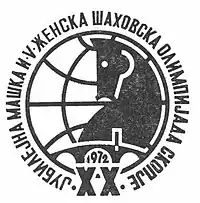
Summary
For the first time, the Soviet team only comprised 5 GMs and one IM (Savon). Since Bobby Fischer had beaten Spassky earlier in the year, the team wasn't led by the current world champion – also a first. It did, however, feature three previous (Smyslov, Tal, and Petrosian) as well as one future champion (Karpov). The team still lived up to expectations, though, and won their eleventh consecutive gold medal, with Hungary and Yugoslavia taking the silver and bronze, respectively.
Before the Soviet team could achieve a victory, there was some controversy. In the 4th round of Final Group A, the Soviets played a match against the team from Bulgaria. A game between Victor Korchnoi and Georgi Tringov was adjourned after 41 moves with Tringov to seal his next move. At this Olympiad, sealed moves were written on a separate piece of paper, not the player's score sheet. Tringov rejected this way of sealing his move and instead wrote it on his score sheet.
When the game was resumed, the arbiter opened the envelope. In the envelope was Korchnoi's score sheet but not the one belonging to Tringov. The arbiter ruled the game a forfeit win for Korchnoi. The Bulgarian team captain instituted protest proceedings but an arbitration committee upheld the arbiter's ruling.
After the Olympiad was over, it was learned that Tringov had absentmindedly placed his score sheet in his pocket. Tringov discovered his mistake several days after his forfeit but was too ashamed to admit his mistake to the organizers of the Olympiad.[2]
In Final B, the Albanian team refused to play Israel and withdrew after round 11. Their matches were regarded as "friendlies" and didn't count in the overall standings.
Jens Enevoldsen represented Denmark at his 11th and final Olympiad, 39 years after his first appearance at Folkestone 1933. Both records at the time (although both have since been beaten by Lajos Portisch).
This Olympiad was the first major success for the Benko Gambit, named after Hungarian-American master Pal Benko. In sixteen games, Black players scored ten wins and six draws with the opening.
The 5th Women's Chess Olympiad also took place; this was the first time that it took place at the same time and in the same venue as the open event. It was won by the Soviet Union team.
Open events
Preliminaries
A total of 63 teams were divided into eight preliminary groups of seven or eight teams each, from which the top two advanced to Final A, no. 3-4 to Final B etc. Unlike the last few tournaments, preliminary head-to-head results were not carried over to the finals, so each teams met one other team twice. All preliminary groups and finals were played as round-robin tournaments. The results were as follows:
- Group 1: 1. Soviet Union, 2. Denmark, 3. Belgium, 4. Cuba, 5. Finland, 6. Dominican Republic, 7. Luxembourg.
- Group 2: 1. Yugoslavia, 2. Switzerland, 3. Peru, 4. England, 5. Brazil, 6. Japan, 7. Syria, 8. Cyprus.
- Group 3: 1. Hungary, 2. Poland, 3. Norway, 4. Indonesia, 5. Scotland, 6. Bolivia, 7. Morocco, 8. Lebanon.
- Group 4: 1. West Germany, 2. Argentina, 3. Iceland, 4. Greece, 5. New Zealand, 6. Mexico, 7. France, 8. Guernsey.
- Group 5: 1. Czechoslovakia, 2. Spain, 3. Mongolia, 4. Israel, 5. Portugal, 6. Ireland, 7. Hong Kong, 8. Malaysia.
- Group 6: 1. East Germany, 2. Sweden, 3. Canada, 4. Italy, 5. Wales, 6. Turkey, 7. Singapore, 8. Malta.
- Group 7: 1. Bulgaria, 2. Netherlands, 3. Albania, 4. Colombia, 5. Australia, 6. Puerto Rico, 7. Iraq, 8. Andorra.
- Group 8: 1. United States, 2. Romania, 3. The Philippines, 4. Austria, 5. Tunisia, 6. Iran, 7. Faroe Islands, 8. British Virgin Islands.
Finals
Final B # Country Average
ratingPoints MP 17  England
England2413 37 18  Israel
Israel2353 36½ 19 .svg.png.webp) Canada
Canada2443 33 20 .svg.png.webp) Philippines
Philippines2365 31½ 21  Norway
Norway2404 30½ 22 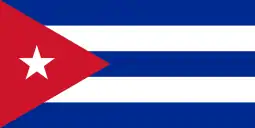 Cuba
Cuba2383 30 16 23  Austria
Austria2360 30 15 24  Iceland
Iceland2419 29 25  Colombia
Colombia2361 27 26 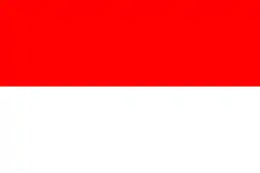 Indonesia
Indonesia2318 25½ 27  Italy
Italy2358 25 28 .svg.png.webp) Mongolia
Mongolia2330 24½ 29 .svg.png.webp) Greece
Greece2273 21 30 .svg.png.webp) Belgium
Belgium2298 20½ 31  Peru
Peru2303 19 - .svg.png.webp) Albania
Albania2245 -
Final C # Country Average
ratingPoints MP Head-
to-head32 .svg.png.webp) Australia
Australia2370 45 33  Finland
Finland2288 42½ 34  Scotland
Scotland2273 39 35 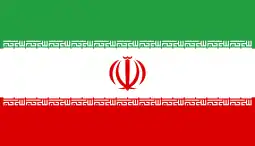 Iran
Iran2250 37½ 36 .svg.png.webp) Brazil
Brazil2236 25½ 37  Portugal
Portugal2285 32½ 38  Turkey
Turkey2261 31 39  Ireland
Ireland2200 28½ 15 40 .svg.png.webp) Puerto Rico
Puerto Rico2280 28½ 12 41  Mexico
Mexico2213 26½ 12 3 42 .svg.png.webp) Tunisia
Tunisia2225 26½ 12 1 43 .svg.png.webp) Wales
Wales2248 26½ 10 44  New Zealand
New Zealand2235 25 45 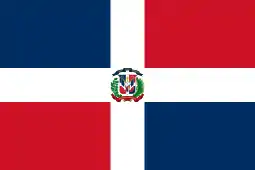 Dominican Republic
Dominican Republic2200 21½ 46 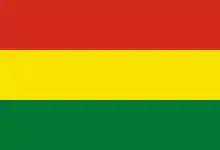 Bolivia
Bolivia2200 19 47 .svg.png.webp) Japan
Japan2220 15½
Final D # Country Rating Points MP 48  France
France2276 46½ 49 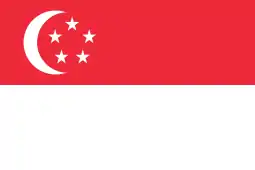 Singapore
Singapore2263 42½ 50 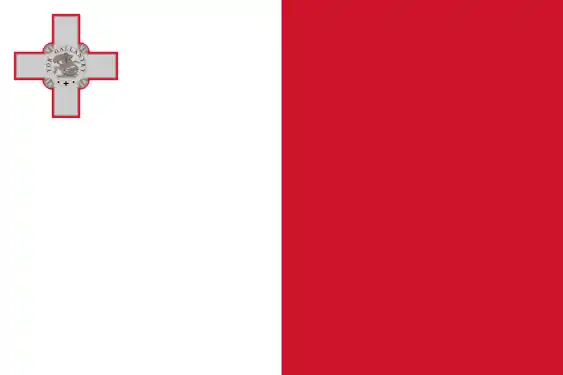 Malta
Malta2213 32½ 51 .svg.png.webp) Hong Kong
Hong Kong2200 30½ 52 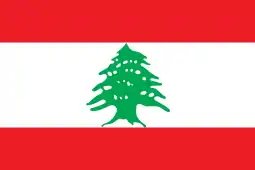 Lebanon
Lebanon2200 30 53  Luxembourg
Luxembourg2214 29½ 54 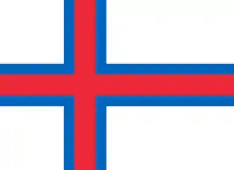 Faroe Islands
Faroe Islands2200 29 55 .svg.png.webp) Syria
Syria2200 28 56 .svg.png.webp) Cyprus
Cyprus2200 27½ 57 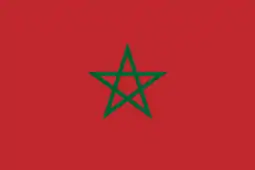 Morocco
Morocco2205 26 58 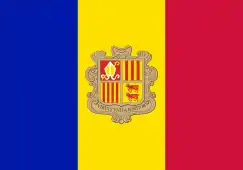 Andorra
Andorra2200 24 59  Malaysia
Malaysia2200 23½ 60 .svg.png.webp) Guernsey
Guernsey2200 20½ 9 61 %253B_Flag_of_Syria_(1963%E2%80%931972).svg.png.webp) Iraq
Iraq2200 20½ 5 62 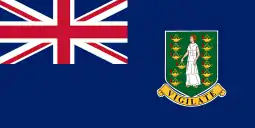 British Virgin Islands
British Virgin Islands2200 10½
Individual medals
- Board 1:
 Robert Hübner 15 / 18 = 83.3%
Robert Hübner 15 / 18 = 83.3% - Board 2:
 Viktor Korchnoi 11 / 15 = 73.3%
Viktor Korchnoi 11 / 15 = 73.3% - Board 3:
.svg.png.webp) Ljubomir Ljubojević 15½ / 19 = 81.6%
Ljubomir Ljubojević 15½ / 19 = 81.6% - Board 4:
 Mikhail Tal 14 / 16 = 87.5%
Mikhail Tal 14 / 16 = 87.5% - 1st reserve:
 Anatoly Karpov 13 / 15 = 86.7%
Anatoly Karpov 13 / 15 = 86.7% - 2nd reserve:
 Aldo Haïk 11 / 12 = 91.7%
Aldo Haïk 11 / 12 = 91.7%
Best game
The Best Game prize went to Werner Hug (Switzerland) - Vlastimil Hort (Czechoslovakia) from Final A.
Women's results
Twenty-three nations took part in the women's Olympiad. From four preliminary groups the teams were split into three finals. The Soviet Union won.
Preliminaries
- Group 1: 1. Soviet Union, 2. East Germany, 3. Netherlands, 4. Australia, 5. Ireland.
- Group 2: 1. England, 2. Czechoslovakia, 3. Yugoslavia, 4. Austria, 5. Scotland, 6. Japan.
- Group 3: 1. Romania, 2. Bulgaria, 3. Mongolia, 4. Brazil, 5. Israel, 6. Switzerland.
- Group 4: 1. Hungary, 2. West Germany, 3. Poland, 4. Sweden, 5. Finland, 6. Singapore.
Finals
Final A # Country Players Average
ratingPoints MP 1  Soviet Union
Soviet UnionNona Gaprindashvili, Alla Kushnir, Irina Levitina 2373 11½ 2 .svg.png.webp) Romania
RomaniaElisabeta Polihroniade, Gertrude Baumstark, Alexandra Nicolau 2258 8 8 3  Hungary
HungaryMária Ivánka, Zsuzsa Verőci, Gyuláné Krizsán-Bilek 2233 8 8 # Country Average
ratingPoints MP 4 .svg.png.webp) Bulgaria
Bulgaria2130 7½ 5  Czechoslovakia
Czechoslovakia2168 7 6  West Germany
West Germany1885 5½ 7 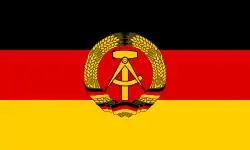 East Germany
East Germany2148 4½ 8  England
England2005 4
Final B # Country Average
ratingPoints MP 9 .svg.png.webp) Poland
Poland2138 10½ 10 .svg.png.webp) Yugoslavia
Yugoslavia2273 8½ 11  Austria
Austria1800 7 7 12  Netherlands
Netherlands2035 7 7 13  Sweden
Sweden1848 6½ 14 .svg.png.webp) Brazil
Brazil1905 6 15 .svg.png.webp) Mongolia
Mongolia1800 5½ 16 .svg.png.webp) Australia
Australia1800 5
Individual medals
- Board 1:
 Nona Gaprindashvili 6½ / 8 = 81.3%
Nona Gaprindashvili 6½ / 8 = 81.3% - Board 2:
 Alla Kushnir 7 / 8 = 87.5%
Alla Kushnir 7 / 8 = 87.5% - Reserve:
.svg.png.webp) Henrijeta Konarkowska-Sokolov 6½ / 9 = 72.2%
Henrijeta Konarkowska-Sokolov 6½ / 9 = 72.2%
References
- Although commonly referred to as the men's division, this section is open to both male and female players.
- Keene, Ray; Levy, David (1973). Chess Olympiad 1972. Doubleday & Company. pp. 68–69.
- This was the first Olympiad after the ELO rating system was introduced, so many players on smaller teams were still unrated. For the purpose of calculating team averages, they were given provisional ratings of 2200, equivalent to that of a Candidate Master.
External links
- 20th Chess Olympiad: Skopje 1972 OlimpBase
- 5th Women's Chess Olympiad: Skopje 1972 Olimpbase